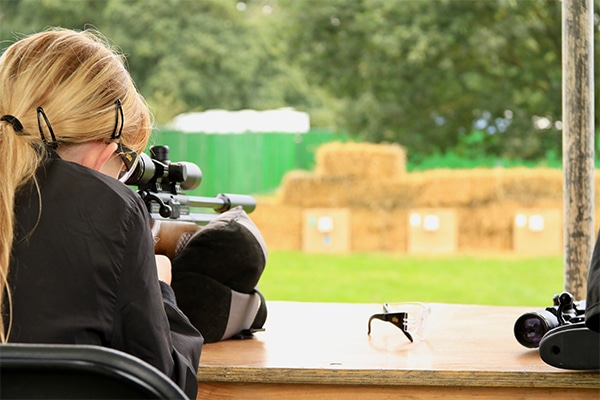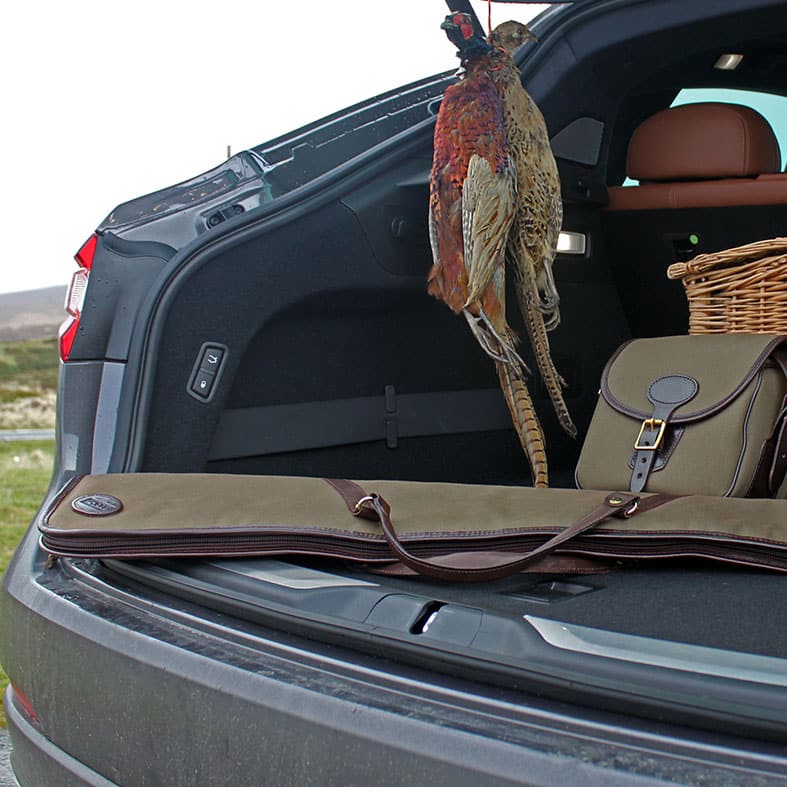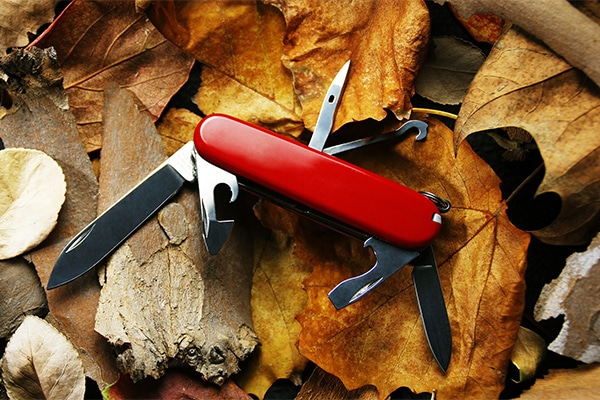
Young people and air weapons
Read our guidance on the use of air weapons by young people, including your responsibilities as an adult in managing access to airguns.
Get information on the legal shooting season for mammals and birds in the UK.
Apply for funding for your project or make a donation today
Comprehensive information and advice from our specialist firearms team.
Everything you need to know about shotgun, rifle and airgun ammunition.
Find our up-to-date information, advice and links to government resources.
Everything you need to know on firearms law and licensing.
All the latest news and advice on general licences and how they affect you.


Home » Firearms » Police involvement in shooting » Guns in vehicles
I was recently asked to advise an estate where gamekeepers’ vehicles were being routinely pulled over by the police at the roadside and searched, for no apparent reason other than that, some months before, a dead buzzard had been found in the area and the opinion of the wildlife crime officer was that “all gamekeepers are at it”. Not surprisingly, my client took exception to this.
The police have wide powers to stop and search people and vehicles, most of which require “reasonable grounds to suspect an offence”. For example, under the Police and Criminal Evidence Act 1984 (PACE), a constable may do so where he or she has reasonable grounds to suspect they will find stolen property, offensive weapons, or articles for use in connection with burglary, theft, fraud or criminal damage.
Similar powers exist under other legislation, such as the Misuse of Drugs Act 1971 and the Wildlife and Countryside Act 1981. There must be an objective basis for suspicion based on facts, information and/or intelligence. It cannot be based on generalisations or stereotypical images of certain groups or categories of people as more likely to be involved in criminal activity.
Where guns are concerned, the power is somewhat wider. Under s.47 of the Firearms Act 1968, a constable may require any person he or she suspects of having a firearm, with or without ammunition, in a public place to hand it over for examination.
She or he may also stop and search any person or vehicle in a public place where they suspect there is a firearm, or that a serious firearms offence is being committed or about to be committed elsewhere than in a public place. A stop and search can therefore be exercised by a constable provided only that he or she has reasonable cause to suspect there is a firearm (i.e. there need be no grounds to suspect an offence).
“Public place” is defined to include “any highway and any other premises or place to which at the material time the public have or are permitted to have access, whether on payment or otherwise.” The powers are there to allow the police to determine whether a firearms offence has been committed, and could arguably be used, for example, to check vehicles leaving a clay pigeon ground or shoot at the end of a day.
In exercising their powers of stop and search, the police must comply with the procedures and safeguards set out in PACE and its Codes of Practice. The search must be carried out at or near the place where the person or vehicle was first detained and the duration of any detention must be reasonable and kept to a minimum.
Before the search takes place the officer must provide their name and that of their police station, the legal search power being used and a clear explanation of the object of the search and, where reasonable suspicion is required, the grounds for that suspicion. He or she is required to make a detailed record of the search, a copy of which must be supplied if requested within three months.
It goes without saying that the police must behave fairly, responsibly, courteously and with respect for people being searched, and they must not abuse their powers by, for example, repeated and fruitless stops of the same individuals to the extent that it becomes unreasonable. This was happening in the case of the gamekeepers I advised.
Often, it is some other event which brings a vehicle transporting guns to the attention of the police. One client of mine was involved in a road traffic accident while driving home after shooting. Another had his gun stolen from the back of his 4×4 on a petrol station forecourt when he went inside to pay.
Whenever a gun or section 1 ammunition is in transit, the certificate holder is required to take reasonable precautions for its safe custody, and a failure to do so could result in revocation or prosecution.
Suitable measures will depend to a large extent on the circumstances, but the Home Office Guide on Firearms Licensing Law sets out steps the police are likely to consider as according with the duty:
While it is not an offence not to carry your certificate with you it is wise to do so, particularly anyone who shoots at night. If you are unable to produce it on demand a constable may seize and detain any firearm or ammunition, and you might be arrested on suspicion of unlawful possession as well.
Strictly speaking, it should be the original certificate, but a good black and white photocopy is usually acceptable. In most cases a sensible police officer will exercise proper discretion and accept it.
The police should be able to verify gun details and identity digitally via National Firearms Licensing Management System (NFLMS) in England and Wales. BASC advises visitors to Scotland to carry their original certificate as Police Scotland does not have 24/7 access to NFLMS.
Got a question? Email us on firearms@basc.org.uk or call 01244 573 010.
© BASC July 2023

Read our guidance on the use of air weapons by young people, including your responsibilities as an adult in managing access to airguns.

Bill Harriman discusses what you should look for in a knife, the pros and cons of different knives and how to choose the right one for you.

Information regarding Scottish knife and offensive weapon laws, including penalties should you break the law.